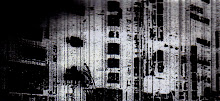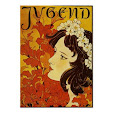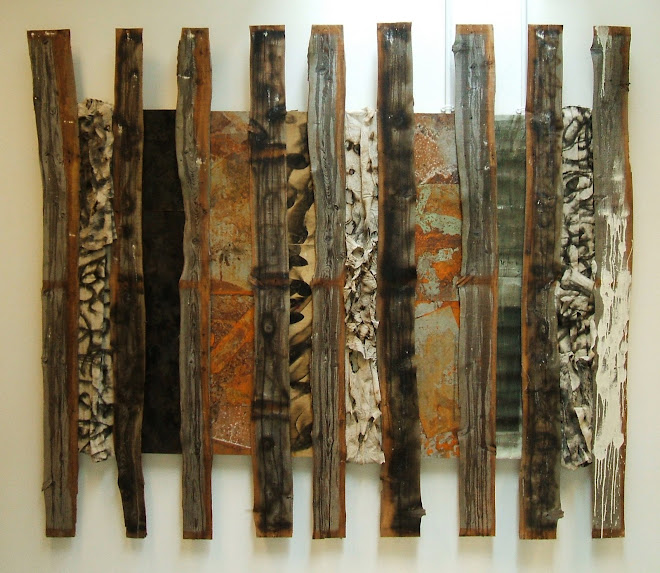
Wednesday, January 28, 2009
Giuseppe Penone
RECORD OF ENCOUNTER WITH AN ARTWORK:
”Rovesciare i propri occhi”
(To reverse one’s eye) 1970

Giuseppe Penone (born April 3, 1947) is an Italian artist, the younger member of the Italian movement named “Arte Povera”.
WEEK 6:
The reasons that made me choose this piece are varied: they not only focus my attention on its aesthetic and enigmatic beauty, but also on its interesting meaning. This work, “Rovesciare i propri occhi”, represents the artist wearing mirrored contact lenses. Penone reserves his gaze: his eyes are blinded, able only to reflect his surroundings. The lenses act as a barrier, indicating the point that separates him from that which surrounds him.
“…They are like skin, a border element, the interruption of a channel of information that uses light as its medium…” (Artist’ statement 1977).
This piece can be also interpreted as a metaphor: the artist that looks at himself and the external world at the same time, an introspective and external analysis happening simultaneously. It is also an interesting way of representing what the artist perceives, memorizes and re-transmits at a later stage through his work, but in this case transmitted from the work itself, before the artist has seen it. In this way the mirrored contact lenses become an inspired deduction within the approach with which Penone appropriates the image.
WEEK 12:
This piece has the power to capture your self within your imagination: thinking about it and looking at it after 6 weeks it still has the same effect on me. It is an intriguing work, able to make you think about your place within this world: how you see, but also how you perceive things. Imagine wearing mirrored contact lenses, it is fascinating how you can extend your sense of sight, accompanied by all the others, and visualize what you have always been observing within the context which at all times surrounds you. Also in the possibility of seeing in the future the images captured by the eyes in the past. It is visually intriguing how when you close your eyes the images which come to you are totally different from the ones you are imaging while thinking of wearing mirrored contact lenses. This is a start for an introspective analysis which relate your self within the world, and the perceptions you have of it. The difference between observing, imagining and imagining to observe.
WEEK 18:
Thinking about this work during different weeks brings out diverse ideas. There are two fundamental experiences expressed from Penone’s piece: the first one is the vision of the surrounding offered to the artist from the spectator, the second is the impossibility that the artist experiences, lacking his sight, in collocating himself within the surrounding’s space. This, consequently, creates an intimate involvement between the artist and the physical limits of his body. Therefore, thinking to be isolated from the space that you habitually see, it can be metaphorically expressed as ‘becoming a sculpture’, projecting your body within space and time. This, also brings out the symbolic value of the body seen as a sculpture, not within its forms, but within its own natural evolutional potential: evolution which is physical, mental and spiritual. This piece contains a fascinating psychological analysis of an extra sensorial development, experienced by the body within space and also within time.
WEEK 24:
Looking at “Rovesciare i propri occhi” so many times, it has been giving me the possibility to analyse Penone’s piece under different points of view, also experienced as personal. An interesting journey, which initially looked at the mirrored contacts lenses as a barrier, as a separation and a limitation from what is the surrounding. Arriving, consequently, at the appreciation of this limit, within its symbolic value and its own creation of a celebrated sensorial experience that most of the time is ignored and underestimated. An experience which is expression of the psyche, as a sign of personal enrichment; a psychological and philosophical journey which invites you to think at the importance of yourself within this world, but also at the relationship that you create with it. As a result, Penone’s creative commitment is focused in an area which, in the final analysis, is beyond our vision.
“…Man rediscovers himself through his sensory and tactile offshoots (eyes, hands, skin, feet, etc.) in all things, and all things are documents of his human existence…” (Germano Celant’s statement, speaking about Giuseppe Penone's work, 1978).
Subscribe to:
Post Comments (Atom)









No comments:
Post a Comment